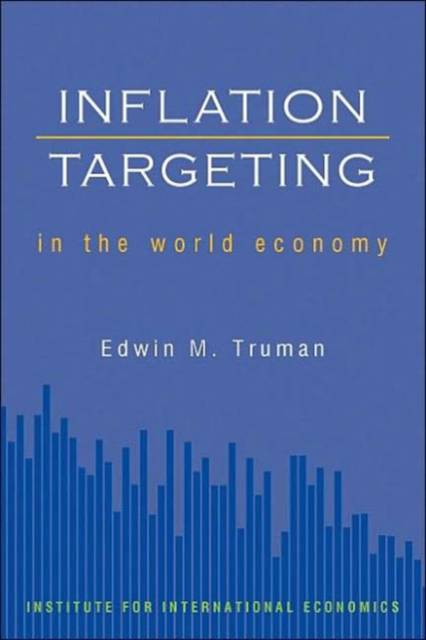
- Afhalen na 1 uur in een winkel met voorraad
- Gratis thuislevering in België vanaf € 30
- Ruim aanbod met 7 miljoen producten
- Afhalen na 1 uur in een winkel met voorraad
- Gratis thuislevering in België vanaf € 30
- Ruim aanbod met 7 miljoen producten
Zoeken
Omschrijving
This study reviews the literature on the contribution of low inflation to economic growth and the subsequent widespread adoption of inflation targeting as a monetary policy framework. Edwin Truman addresses the challenges and risks associated with such a framework. Building on these foundations, the study focuses on two major international economic policy issues: (1) the implications of differing national regimes of inflation targeting for international economic policy cooperation; and (2) the adoption of inflation targeting by emerging-market economies which often lack stable monetary policy environments and credible policy authorities--a situation which, among other things, can complicate the use of the inflation targeting framework as the basis for IMF-supported stabilization programs.
Specificaties
Betrokkenen
- Auteur(s):
- Uitgeverij:
Inhoud
- Aantal bladzijden:
- 288
- Taal:
- Engels
- Reeks:
Eigenschappen
- Productcode (EAN):
- 9780881323450
- Verschijningsdatum:
- 27/10/2003
- Uitvoering:
- Paperback
- Formaat:
- Trade paperback (VS)
- Afmetingen:
- 170 mm x 213 mm
- Gewicht:
- 390 g

Alleen bij Standaard Boekhandel
+ 84 punten op je klantenkaart van Standaard Boekhandel
Beoordelingen
We publiceren alleen reviews die voldoen aan de voorwaarden voor reviews. Bekijk onze voorwaarden voor reviews.











